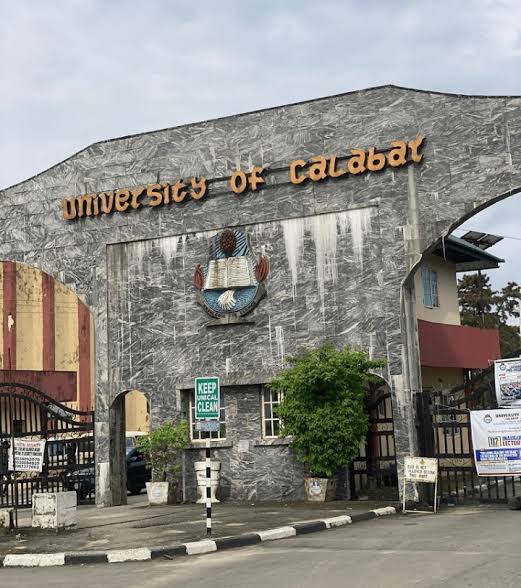The University of Calabar (UNICAL) has found itself at the centre of heated controversy following a decisive move by its management to reclaim several residential apartments—particularly Boys’ Quarters (BQs)—previously allocated to some professors and other senior members of staff. The development has stirred strong reactions across the academic community, with allegations of unfair treatment, procedural lapses, and concerns over welfare and housing rights within the institution.
According to reports, the decision came after the university management discovered that some staff members were allegedly subletting their BQs to outsiders, including students and non-staff, for rent fees ranging from ₦80,000 to ₦350,000 per annum, while remitting only a fraction of that amount to the institution. This act, the management argued, violated the university’s housing policy and deprived other deserving staff members of accommodation benefits.
Management Justifies Action, Cites Need for Accountability and Fair Housing
The University of Calabar management explained that the action was taken to restore order, accountability, and fairness in the allocation of university-owned housing facilities. The governing council, through its official communication, directed that all affected staff vacate the reclaimed apartments on or before April 30, 2025.
The statement emphasized that the reclaimed quarters would be reallocated to junior staff who genuinely need accommodation within the university premises. It also stated that the reallocation would follow a transparent process under the supervision of the housing department, ensuring proper deductions and compliance with institutional policy.
A senior management official, speaking under anonymity, noted that the decision was not intended to target or embarrass any specific individuals but to sanitize the system. According to the source, the council had received multiple complaints over the years about professors and senior staff converting university apartments into personal rental income streams.
“We cannot continue to allow university property to be turned into a private business venture. The Boys’ Quarters were meant to support official accommodation, not to be rented out to outsiders. The decision is in line with best administrative practices and the council’s mandate to ensure fairness,” the official said.
Professors and Staff Kick Against the Action, Allege Harsh Treatment
However, the management’s action has been met with strong resistance from some of the affected staff members. Several professors and senior staff have described the exercise as high-handed, claiming that university officials forcibly entered their apartments, threw out personal belongings, and changed locks without adequate notice or due process.
One of the affected staff reportedly lamented that despite paying housing fees regularly, the management went ahead to reclaim the property without an official hearing or compensation. Another accused the institution of disrespecting the dignity of senior lecturers who had served the university for decades.
“If I am paying rent for my official residence, I should have the right to use the Boys’ Quarters as I deem fit—whether for dependents, relatives, or domestic help. What they did was humiliating and unnecessary,” a staff member complained.
These complaints have drawn sympathy from some academic circles, with concerns raised over the alleged lack of consultation and the perceived disregard for staff welfare. Critics have questioned whether the management followed the proper legal and administrative procedures before executing the evictions.
UNICAL Management Responds: ‘Those with Genuine Grievances Can Appeal’
In response to the backlash, the university administration reiterated its commitment to justice and transparency, urging any affected staff with genuine grievances to formally approach the Governing Council for redress. The management maintained that the institution’s decision was based on verified reports of abuse of privilege and that the move was aimed at ensuring that staff quarters are used solely for their intended purpose.
The university also clarified that the exercise was not a witch-hunt, but part of broader efforts to reform the institution’s housing system, eliminate corruption, and provide equitable accommodation for all categories of staff—particularly those who have long been denied access due to unavailability of space.
Background: The Housing Issue in Nigerian Universities
Accommodation challenges have been a long-standing problem in most Nigerian universities. Over the years, the shortage of staff quarters has led to various irregularities, including illegal subletting, favoritism in allocation, and conversion of official residences for private use.
Experts in educational management have noted that these challenges are often compounded by outdated housing policies and poor enforcement mechanisms. Many universities rely on decades-old systems that no longer reflect the current realities of staff population and available infrastructure.
The University of Calabar’s latest move appears to be part of a wider reform to curb these excesses. However, observers warn that while the intention might be noble, the implementation must be handled with fairness and respect for institutional due process to avoid undermining staff morale and public confidence in the management.
Reactions Across Campus: Divided Opinions Among Staff and Students
The decision has divided opinions within the university community. While some staff members believe the management’s action is long overdue, others argue that it could strain relationships between the administration and the academic union.
A junior staff who spoke on the matter praised the university for prioritizing equity, noting that many lower-level staff members have been forced to live off-campus due to lack of space, while some senior staff hold multiple apartments for personal gain.
“I think it’s a fair decision. Some of us have worked here for years without any housing allocation. It’s only right that the university reclaims those apartments from people who misuse them,” the staff member said.
However, others warned that the move might set a troubling precedent if not properly managed. They called on the university’s management to ensure open dialogue and create clear guidelines to prevent future conflicts.
Looking Ahead: Balancing Discipline with Fairness
As the situation continues to generate debate, education analysts have called for a balanced approach that enforces accountability while protecting staff rights. They recommend that universities across Nigeria review their housing policies to prevent exploitation and ensure that institutional resources are used responsibly.
For the University of Calabar, this latest development serves as a defining test of its leadership’s ability to reform internal systems without triggering unnecessary unrest. The management’s next steps—especially how it addresses the grievances of the affected professors—will likely determine the long-term outcome of the decision.
Conclusion
The University of Calabar’s move to reclaim apartments from professors and senior staff marks a significant turning point in the institution’s housing policy enforcement. While the administration insists it is an effort to promote transparency and fairness, the controversy it has sparked underscores the delicate balance between governance, discipline, and staff welfare in Nigerian higher institutions.
Whether this bold step will ultimately strengthen institutional integrity or deepen divisions within the university remains to be seen. One thing is certain—UNICAL’s decision has ignited a conversation that could reshape housing management across Nigeria’s universities.



